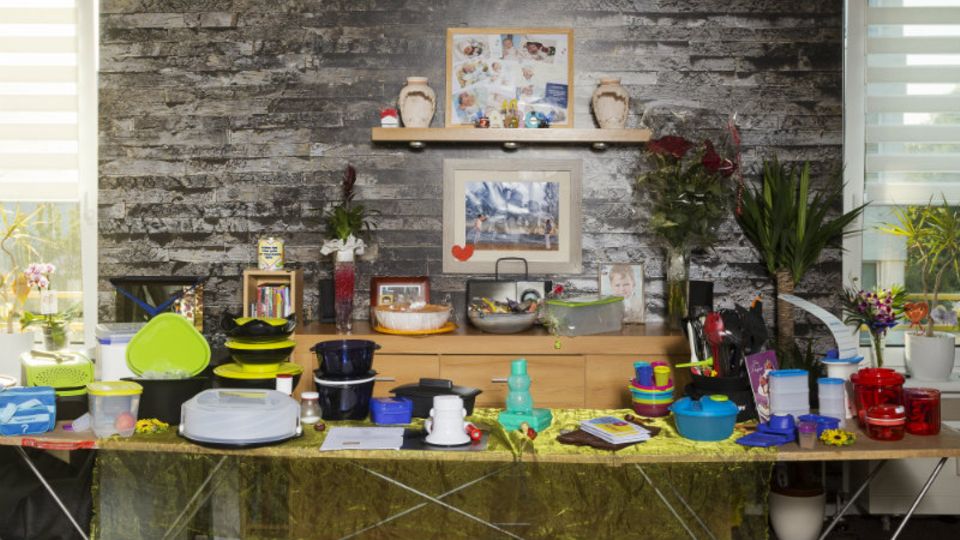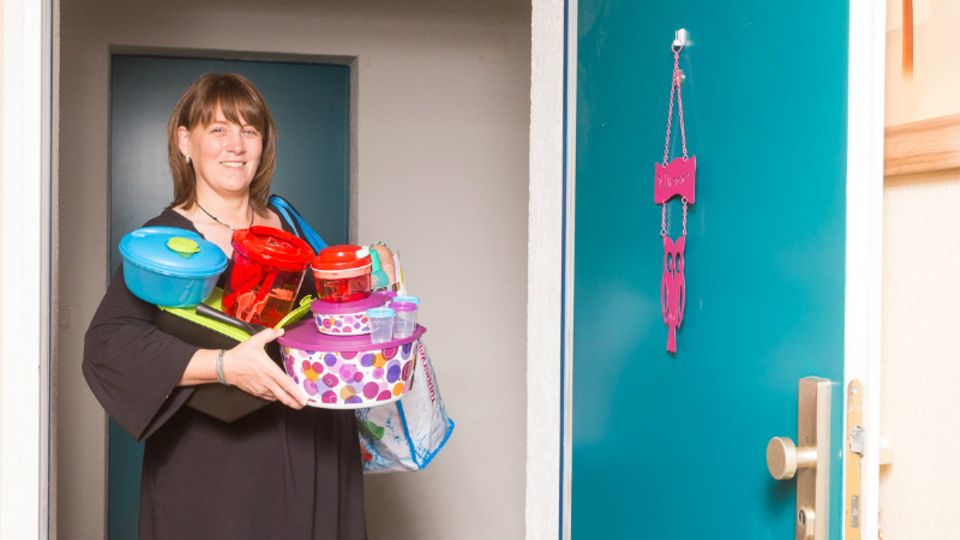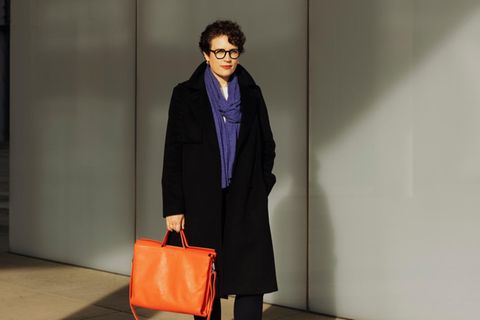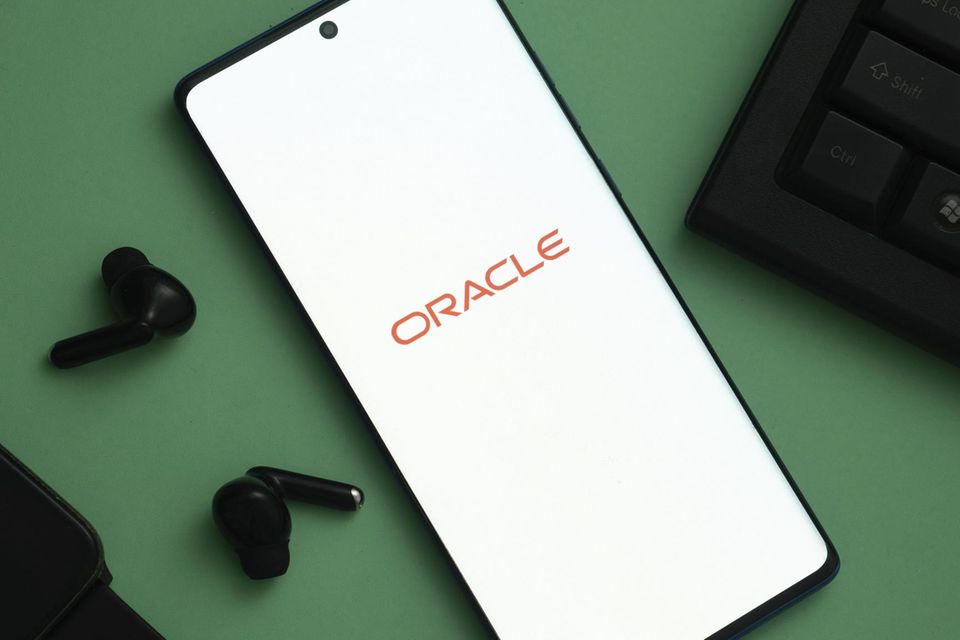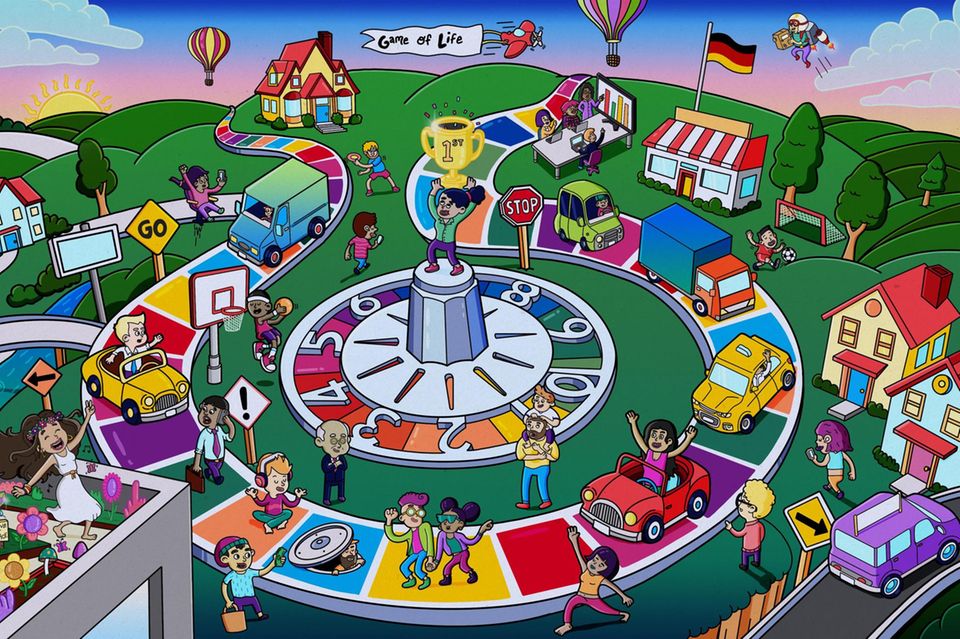Tupperware CEO Rick Goings führt das Unternehmen seit 1992. In der neuen Capital widmen wir uns auch der boomenden Direktvertriebsbranche: Firmen wie Tupperware, Vorwerk und andere machen Milliardenumsätze mit Verkaufspartys in deutschen Wohnzimmern. Das Interview mit Goings veröffentlichen wir hier im englischen Original
Mr. Goings, I'm sorry to say, but you produce a boring product. So please explain me: Why have you been successful for the past years?
Well, I love the way you frame that question. We have the belief that every successful business model works until it doesn't. Coming to the company in 1992, the company had lost a lot of money. The product line was boring. The selling method was old-fashioned and the earning opportunity really needed to be contemporized. So Job Nr 1 for us was: How do you change this?
And how did you do this?
I would use an analogy: When Steve Jobs come back to Apple in 1996, the company had gotten boring because laptop computers and table top were commoditized. So his first five years he spent coming up with new design of product. That’s all that can change much. That was in the front room. In the backroom, he was working on iPods.
So what was your iPod?
First thing we did was to get away from just commodity. We had to change the product line to move away from that. It was 89% food storage when I joined. It is right now 25%. We had to give away the low ground. I took this lesson from the great Prussian strategist, Carl von Clausewitz. His lessons was on altitude. With altitude you have a 50 percent advantage. You throw hot oil down rocks etc. That was decision number one. Give up the low ground. Give up the commodities to cheap products. So we moved upscale and produced high-tech.
Could you give me an example?
Continental Europeans throw away about one third of the fruits and vegetables they buy. They don't eat them! Why? Because they don't store them the right way. We came up with unique, new ways so that things like peaches never sat in its own condensation and get brown spots. In airplanes, you can only fly to about 3,500 metres and you need oxygen. So we came up with: Isn't it the same for fruits and vegetables? If something is like a potato it doesn't need any oxygen and it doesn't give off any carbon dioxide. If it is on the surface, it needs some of both. If it is something like broccoli, which is flowering, it needs a lot. We came up with, through research, a whole new method that you would store and it doubled the shelf life. We went into things like cheese. We came up with a product called Cheese Smart which uses a material very much like Gore-Tex on the top. It gives away moisture, doesn't contaminate the environment.
But that’s all core: food storage.
Yes, we didn't give up the core. But then we did what Steve Jobs did. Like Jobs, we started to say: What other categories do we need? We looked at microwaves. How do people use microwaves? In Europe, mostly for reheating things or for liquids. What if you could cook in a microwave? But then people said: “The effect of microwaves on food isn't good. “What if you could convert a microwave into a steam oven? So we created a product called Micro Gourmet which can go in the microwave even though it contains metal. The metal is completely contained within the plastic, so the microwave does not know it is there. It sells for about 150 US dollars, and in 13 minutes you have a delicious, healthy, well-balanced meal! It’s perfect for a busy working woman or busy single woman.
Do people really like this?
Yes! I recently told a Russian journalist: I can show you in 120 seconds how to make the evening meal. She said: No. I said: I will give you time for a glass of wine. Then I had her open some asparagus and some fish. She puts water in the bottom, asparagus in the bottom, fish in the top, teriyaki sauce, sealed it and it took her 61 seconds. And then I said: Put it in your microwave for 13 minutes. She said: Well, I never thought of Tupperware that way before. So we kept moving in that direction. We got into food preparation products. One of the hottest selling products in Germany over the last three years has been a non-electric food processor. People don't know what to do with their leftovers. We would show on our parties how to take what's in your refrigerator, and create additional meals out of it, like making omelettes, etc. The Food processor sells for 65 Euro.
That's quite expensive actually.
20 years ago, our products were typically 10 Euro. Now we have a lot of products for 60, 70, and some are 100 Euro. So the product line changed just like Apple. So much has changed. 30 percent of our business in China is water. We sell a 1000 Dollar water filtration system. When you buy Tupperware, you buy quality and a lifetime guarantee.
You have a unique way of distribution. Do you still use the old ways of distribution for the new products?
Yes, we use the old ways in new ways. Firstly, what always made Tupperware work was that our value chain was different than retail. We had a cost of goods sold like retailers did. But what's the next cost that retailers would have? Rent! We have no rent. No one’s ever charged us for holding a Tupperware party in her home. Next: Advertising. We don't advertise. Rent and advertising are not part of our value chain. We redeploy that money and that's given to our sales force. The new generation born from 1990 on till now, the “Millennials”, who don't believe in advertising anyhow. They think advertising is nonsense. They use social media and ask their friends.
I can't picture the Generation Facebook doing a Tupperware party.
There are two kinds of people in Germany. What built Tupperware in Germany: It was for Hausfrauen in Kleines Dorf. They don’t live in Munich, but when you go deeper into Bavaria. Do women who cook for theirs husband still exist? Sure, in certain places. However, as you start moving towards Munich, you meet younger women, better educated, they have a different attitude about relationships. She doesn't necessarily think she needs to get married. She cares about her network of her friends. So how did the party change? In Munich, it's a girls’ night out. It's getting together at someone’s flat. It is six women, all busy, they do not want to cook, but they love to entertain. They want to hear about the Micro Gourmet product. They don't want to hear about baking cakes.
So you look across new networks…
It's FNR - Friends, Neighbours, and Relatives. It's her intimate connection. There is a scale called the intimacy scale. Millennials want intimacy. Face to face. That's what a Tupperware party is. Every 1.4 seconds there's a Tupperware party starting somewhere in the world. And the German business is bigger. Some would say: I can't believe it works. Read our numbers!
You are strong in Germany but recently you lost 6 percent of your revenues.
While of course our goal is to return the German market to positive growth, I am pleased to report that the 6 percent number represented a significant sequential improvement over the previous quarter. While we still have some work to do, I am confident that we are getting back on the right track. We’ve got a good managing director, new head of sales and a dynamic marketing director who are all re-energizing the business in this important market.
Investors don't seem to buy this story, you shares dropped recently.
I’d like to think that now is a good time to get into the Tupperware stock. We are a company that is poised to take advantage of significant global trends, including the growing middle class in the emerging markets, and have consistently delivered value for our shareholders through dividends and share repurchases.
You talk about a generation that has an iPhone, that is on Facebook, and it's also the Generation To-Go. That means, they don't even store anymore, they don't cook at home. They just go out and get a coffee from Starbucks. How do you reach to these people?
We embrace technology. One of our biggest categories is food on the move. She will bring her things with her. She will go, she will use Tupperware. That's a category that is not very big in the US, because there is so much fast food there, but in Germany it is a big category for us. Now, how do we use technology? You got an iPhone? You go to a Tupperware party, there's an application. You want a menu on something? You hit what that thing is, it will come up with "Here is what you need to buy at the store!" Then you get the items at the store, you bring it home, you turn your iPhone on at the video section and and then you are shown how to make it. The question is: How do you use technology to support intimacy? It's not replacing it. We tried in the US. Throw everything that we could at Internet but the fact remains that online sales account for only 3 percent of our business.
Do you still get enough women to have Tupperware parties?
We are getting even more women who are college educated. This is the “show me the money generation” around the world. She does not want to sit there and make 10-15,000 Euros extra per year. Show me how to make a 100,000 Euro. We have many women in Germany who make more than a 100,000 Euro per year.
Really?
Oh yeah.
What’s their share?
If a product sells for a 100 dollars, 50 cents of each dollar goes to our sales force. About 25 percent of it goes to the actual seller and the remainder goes to the distributors and the managers. But as you see, our products changed and the selling method changed. It’s still okay to sell in the old ways in rural Germany. But the closer you get to the city. It’s a different deal. It’s one or two people in a household. So our products changed, selling method changed. In the rural areas the women look for a party for social stimulation, to get out of the house. Parties there typically last up to 3 hours. In a city a party lasts 90 minutes, they drink wine, and it will be about decadent and delicious desserts or quick microwave cooking. It will be Tex Mex. When I come to Germany, I will show them how to do guacamole in six minutes. We still have 60,000 women in Germany.
60,000?
We are the biggest direct sales company in France. We are the biggest seller of cook books in France. See it differently: Some of the things are still the same. You say: How would you do it for this different generation? I guess the best way to show you to embrace is when I joined the company in 1992, the market cap was about 500 Mio. Dollars. It is pushing five billion now.
I hope you got some shares in the beginning.
In the early days I said: “Do not worry about paying me, give me just a percentage.” I truly believed in it and embraced it. I'm of Austrian ancestry. Living and working in the US, then moving to Europe, and moving to Asia, I started to see the big changes and the difference. The more I see, women are more the same than they are different.
Why are you so successful in Germany? Did you ever think about this?
First, Germans like quality. They embrace quality. Our products are watertight and airtight. I have had letters sent to me from people whose salvage vessels had brought up on the rivers boats that had sunk. Five years earlier they had stored chocolate chip cookies in the Tupperware container. When they were opened, people would say: "These are still good.” Number two: It's a culture. They follow the system or the rules. Tupperware is a system. Germans are better at following a system. I've been living at Munich Maximiliansstrasse. I wake up at 3 AM in the morning and I'm looking out of the window. The light says: Do not walk. There is no traffic! And I watch people for five minutes. They don't walk until the light changes. Germans are so great at following a system. Good or bad, but they follow that system. The third piece: The empowerment of women. More and more women in Germany are tired of being held back. Germany has strong women who are looking for opportunity. We give it to them.
What has Tupperware to do with liberation of women?
Look at Asia. In a country like Indonesia, many women used to prepare food every day. They spent a significant amount of time on food gatherings and preparation. Now she can store her rice, she can keep it free of bugs, and she does not need to do this every day. So it is liberation for her. Markets like India, they used tins before it. Now all of a sudden, they get that space-age product that is watertight and airtight, for her it is liberation.
Someone could just copy your product in Asia. Do you have a problem with that?
Sure we have companies do that. We do two things to really counter that, and it's very effective. Number one, 25 percent of our sales are from new products every year, so we do just try to keep up with where we are going, and with the products. Number two: We are very aggressive about enforcing our trademarks, we have a big intellectual property department and the Chinese government is changing its approach to this.
In how many countries are you selling?
We are selling in nearly 85 markets.
And in how many countries do you produce?
There are 17 factories that we have, but we don't make everything now. We’ve learned from the Nike model. About 40 percent of our products are produced by other companies.

